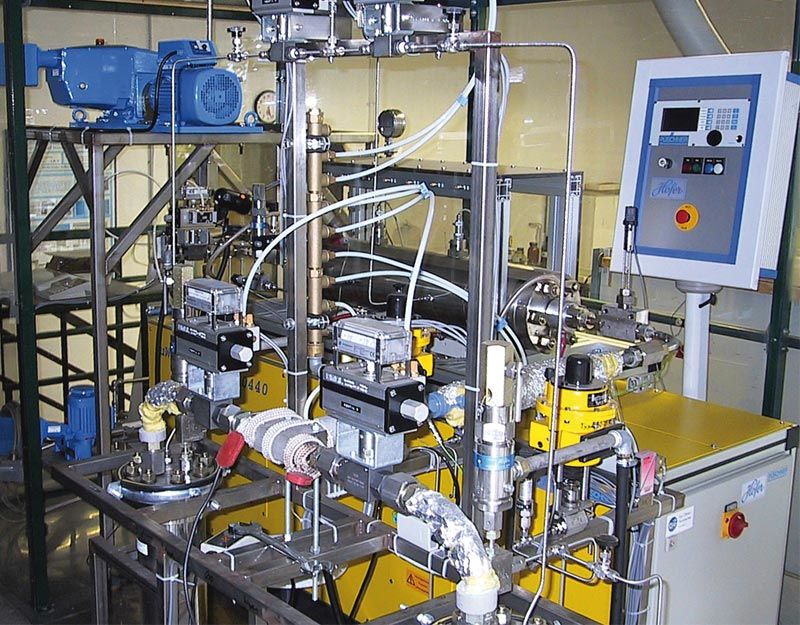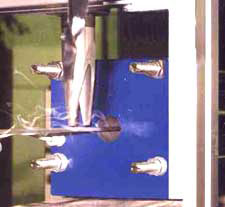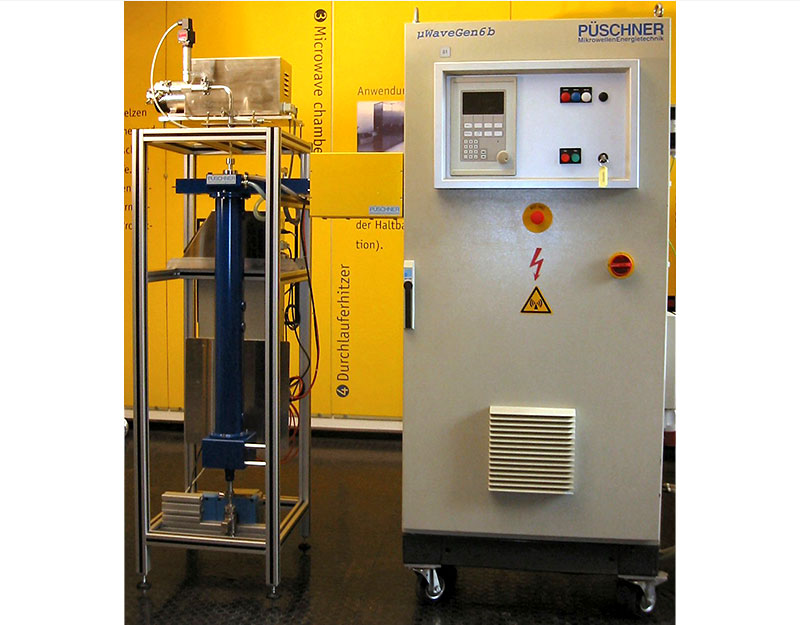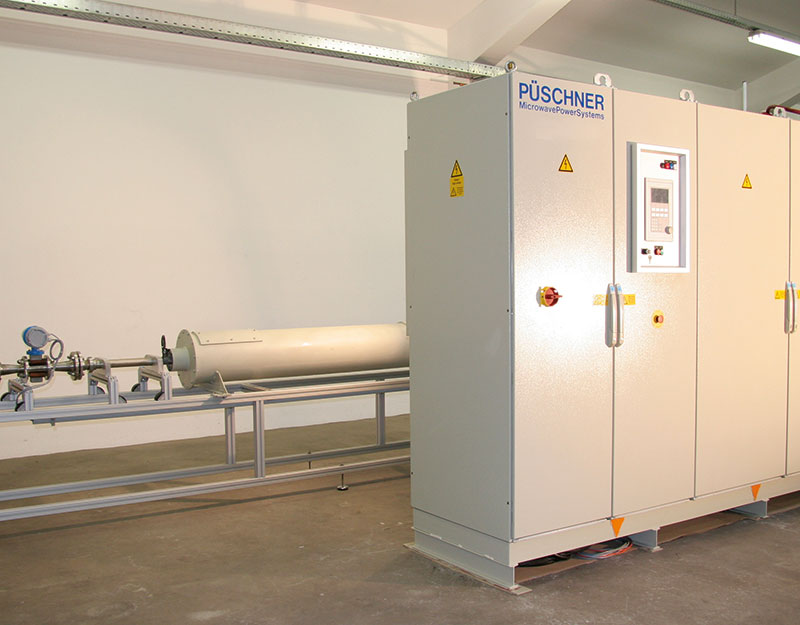Püschner Flow Heater / Reactor
Ultra fast Heating of liquid and viscous Product Streams and string-shaped Profiles
Two general product types can be treated in microwave flow heater:
- Viscous and liquid products, which can be pumped through a tube using tube diameters in the range of 1-60mm
- string-shaped profiles and strand products within a diameter range of 0.01 – 100mm
Püschner Flowheaters are used for ultra fast heating of inline flows for sterilization / pasteurization in the pharmaceutical and foodstuff industry as well for plastic profiles. Using a constant throughput rate within a microwave applicator, the product flow can be heated within a very short time to a final and constant end temperature. As the total volume of the product is heated, deposits known from conventional heating systems are avoided. Due to a fast heat transfer, the length of the active microwave zone is small and the residence time for the product is short.
Application Examples for Liquid and Viscous Products
The product is pumped at a constant flow rate through the microwave applicator tube. Constant temperatures up to 180 °C are achieved at the outlet owing to the homogeneously imported energy. Depending on the individual application, tubular diameters up to 60 mm can be accommodated. There are systems in use that accomplish a temperature elevation of 100 °C while managing a throughput of 0.5 tonne / hr. The modular construction enables an increase of the throughput up to any desired rate. Especially in the case of high-quality products, such as sera from the pharmaceutical industry, the rapid adjustment to a constant temperature at the outlet helps to prevent an impairment of the product.
Application Examples for Strand-shaped Products
Microwave continuous flow heaters are also used in the production of shrink-heated insulation coatings. Despite having a very low dielectric loss factor, these products, with a maximum diameters of 40 mm, can be brought to expansion at temperatures up to 160 °C . There are also various plants in operation that polymerize glass-fibre reinforced profiles from epoxy resin and unsaturated polyesters. Novel continuous flow heaters invented for heating thin strands, such as fibre glass bundles that contain a high amount of polypropylene (loss factor =10-4), can be heated up to temperatures of 180 °C while high throughputs are maintained. These systems are very well suited for heating and drying of very thin fibre bundles. All models enable a throughput which is one order of magnitude higher than that achievable by conventional heating.
Figure 2. High pressure flow heater µWavePressure0440 for thermochemical conversion of organic product flows (250bar/350°C)
Figure 3. Product outlet of a continuous flow heater as used in the polymerisation of glass-fiber reinforced plastic profiles (45m/min.)
Advantages
- Direct and homogeneous heating of the product volume
- Lower surface temperatures than in convective procedures
- Rapid temperature rise and control response
- Quality maintenance of high-end products
- No wall deposits
- Immediate operation readiness
- High total efficiency
- No temperature coasting after standstills










